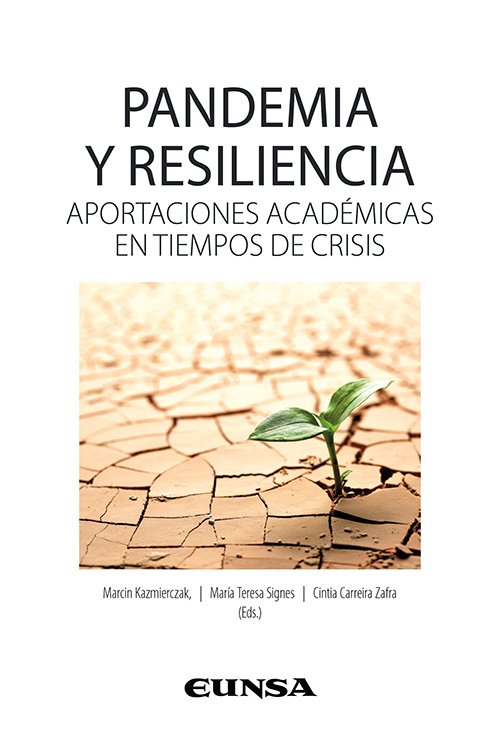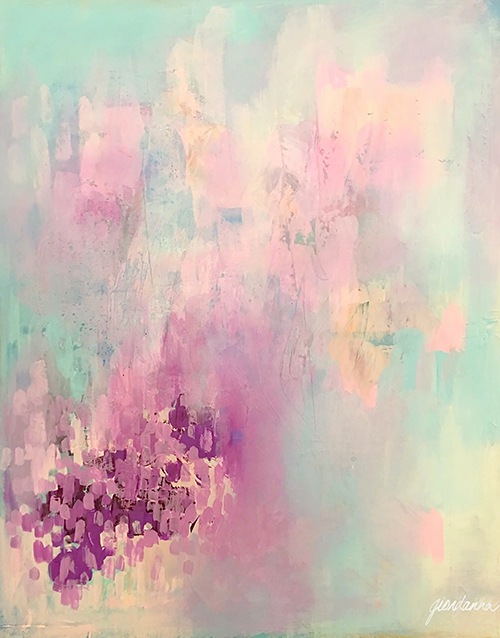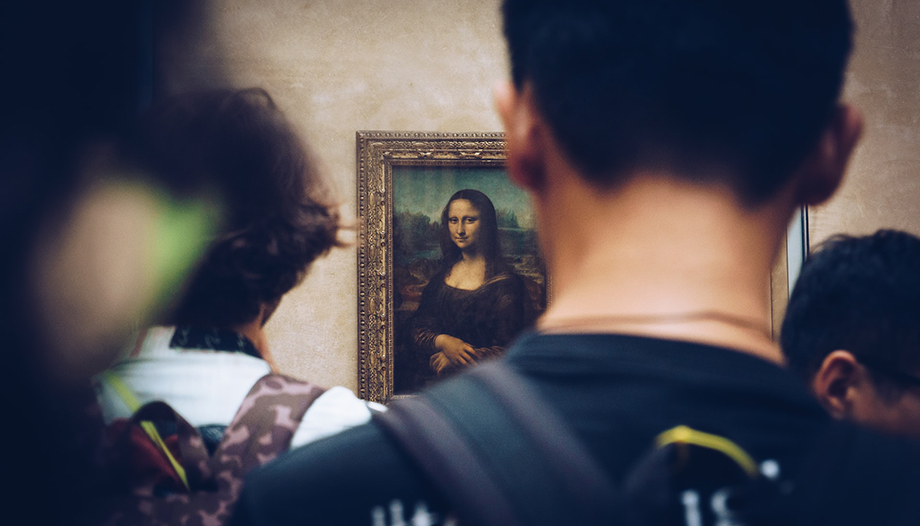Maria Teresa Signes, is vice-rector, professor of the degrees of Education at the Universitat Abat Oliba CEU (UAO CEU) and member of the research group 'Family, Education and Inclusive School' (TRIVIUM) of the UAO CEU. Together with other professors she has written the book Pandemic and resilience: academic contributions in times of crisis.in which it devotes a chapter to the Power of beauty in times of pandemic. Of these reflections he spoke with Omnes, in a conversation about beauty, human nature and transcendence.
In this book you allude to the protagonism of art, in its multiple manifestations, as a "refuge" during the pandemic. Do you think that this forced stop has forced us to turn our gaze towards what really defines us as human beings - creators of beauty? Have we learned to value more the everyday beauty that surrounds us, for example, nature?
R.- Indeed, the unexpected situation in which we all found ourselves about a year ago, has meant a "forced stop" in our daily dynamics. All the sometimes frenetic activity that we carry in our day to day, was completely altered not with a reduction, but with a confinement that isolated us from the rest of the members of the community, leaving us only the company of the people with whom we live and in some cases, in the most absolute loneliness.
Let us not forget that Aristotle already said that man is a social being by nature and he argued his statement on the need we have for others, not only for our physical survival, but also for our spiritual survival. In this sense, recent reports are showing that the pandemic situation and the social isolation that has resulted from it is causing a considerable increase in mental health problems. All this is evidently accompanied by the difficult economic situation and social crisis that has been generated over the last year.
Art has been a defense mechanism, ways have been found to express fears and anguish and also to express emotions and cope with them.
It is in this complex context that initiatives have arisen against the backdrop of cultural and artistic activities. In this sense, art has been a defense and prevention mechanism since, through painting, music, literature, etc., ways of expressing fears and anxieties have been found, as well as resilient models for expressing emotions and coping with them.
Art, in all its forms, also allows processes of mimesis and catharsis. Mimesis in that it allows the human being to identify with certain situations and catharsis in that this identification makes possible its transformation and therefore the overcoming of these complex situations.
The ability to create in even traumatic situations highlights the need that man has to express his emotions through artistic work.
The human being is the only being capable of being moved by a work of art, especially at the moment when he identifies himself with it and is also the only being who creates art. Throughout the history of mankind, there are many artistic works that show the anguish that man has felt at certain moments in history. Many artistic works, especially paintings, represent the fears that were felt in the face of certain events, such as epidemics, wars and the representation of death itself as a terrifying fact. This ability to create in complex and even traumatic situations shows the need that man has to express his emotions and feelings through artistic works.
Likewise, the situation created as a result of the pandemic has caused a considerable change in the habits and routines of people's lives. Beyond the consequences, we could say positive, that this has had for the environment, I mean the considerable decrease in environmental pollution due to the reduction of traffic of vehicles, airplanes, boats, etc., as well as the breeding of some animal species, has also caused a new look towards nature, as well as towards everyday things.
Social and personal isolation has allowed us to value those things that go unnoticed in our daily lives, precisely because they are everyday things. Too often we think that our reality will be what it is, eternally, without considering how ephemeral our own life can be. The loss of this everyday life has allowed us to value much more the little things, a coffee with a friend, with work colleagues, a greeting, a walk, observing the change that occurs in spring when the almond blossoms bloom, a look, a smile..., there are so many things that make up the everyday... I trust that everything that has happened to us will help us to value all this reality of the little things that are ultimately what help us to become aware of who we are and how important it is to respect the nature that gives us so much.
The book


Some time ago, a photo went viral of several students in the Louvre looking at their cell phones without paying attention to the Mona Lisa. In this sense, how can we educate people, from childhood, in the field of contemplation and not just looking? How can we develop a critical spirit in the face of the self-contemplation offered by the media culture?
R.- The first thing to consider is the difference between seeing, looking and contemplating. Seeing we see because we have eyes, and in this sense, we can see life passing before our eyes. Looking entails the intention of analyzing what we see. It is therefore a step further in the relationship with reality.
The gaze, therefore, is not indifferent, but implies going beyond the image captured by our eyes. In this sense, looking allows us to know and apprehend, that is, to make our own, part of reality and of the other, and even of ourselves. However, contemplating implies transcending reality, going deeper into it to the point of seeking the truth within what we are looking at.
Behold allows us to get to the essence of things, becoming aware of what things are. When we speak of contemplating, we do not speak of a task that we do with our eyes, not even with our brain, but with our soul.
Looking allows us to know and apprehend, that is, to make our own, part of reality and of the other, and even of ourselves.
Indeed, if we want to make our children and adolescents into whole persons capable of contemplating, we must educate them to be able to do so. To do this, we must teach them from an early age the importance of silence. This is no easy task in a society that shuns silence.
In a society that does not consider isolating itself from the media noise, probably because it means finding itself inwardly, and this is too often frightening.
Children and adolescents must be educated to be able to listen to themselves, because only when they are able to listen to themselves will they be able to listen to others.


Contemplation in the context of education goes hand in hand with listening. And listening begins with oneself. Accepting who we are, without falling into superficial self-contemplation that leads us to pride and personal isolation, is not easy. Educating in this sense means educating judgment as a capacity that allows us to reason. To have a good critical judgment means to have a physical and mental maturity as a result of a good education, not only at school but also in the family. The critical spirit must start by being applied on oneself, being able to see what the meaning of life should be, always from humility and the recognition of our vulnerability and contingency.
In this situation, families and teachers face an arduous task, since the current media culture, marked by a materialistic, secularized and, on too many occasions, personalistic vision, hinders the education of the youngest.
Max Jacob affirmed that the surest way to reach the good is beauty. St. Thomas Aquinas developed the "Via Pulchritudinis" as one of the ways to know God. Do you think that education in beauty can be a way of transcendence for today's society?
R.- Indeed, education in beauty implies educating in transcendence and for this we count on contemplation, as the way to discern what is beautiful, by deepening through it and reaching, as we said, the very essence of things.
In the postmodern culture in which we find ourselves immersed, we can see how difficult it is to produce an authentic encounter not only between different people, but also between man himself and himself and, of course, with the real meaning of human life.
Thus, the need to generate activities that allow the deepest nature of man to emerge, with a well-constituted and articulated identity, based on his capabilities and potentialities, within a continuous process of searching for himself and the truth, becomes evident.
Educating in beauty means educating in depth, transcending the work of art itself. Let us recall the words of the Holy Father John Paul II when in his Letter to artists, said: By modeling a work, the artist expresses himself to the point that his production is a singular reflection of his own being, of what he is and how he is..... Through the works produced, the artist speaks and communicates with others. The history of art, therefore, is not only the history of works, but also of men..
To educate the gaze towards the contemplation of beauty is to open the human mind towards its own essence and its own identity.
Defining what is beautiful, as a concept linked to the epistemological and affective analysis that arises from the interaction of the person, with himself and with the world around him, should be understood as another element of the educational process. And therefore, the education of beauty can be considered as a way of transcendence for today's society towards the beautiful and the true.












